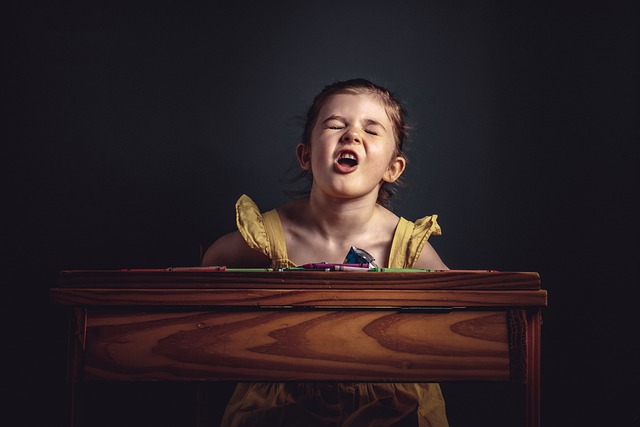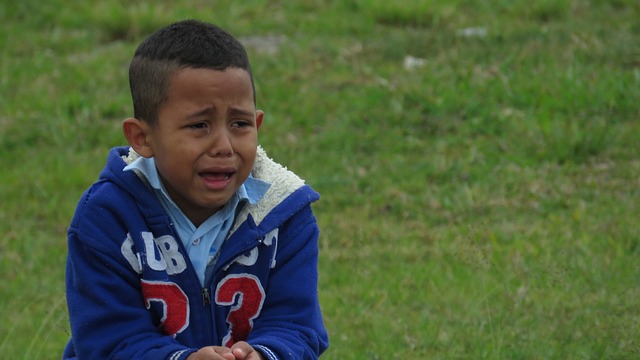Following on from the previous issue on frequent urination part 1 – Pollakiuria , there are also causes of abnormally frequent urination that are not due to Pollakiuria so it’s a good idea to be mindful of other conditions that could contribute towards this condition in your child.
One of the most common causes for frequent urination can sadly be caused by stress and anxiety from mental health conditions as a result of unhealthy home or school environments. The mind will trigger an internal reaction which creates abnormalities in urination caused by the muscles of the urinary bladder or the nervous system, which then results in the feeling of always needing to urinate. Sadly when parents or teachers become angry or frustrated over this issue, the trigger becomes even more prevalent and thus starts a chain reaction. An overwhelming amount of doctors have reported after much testing for frequent urination, the issue actually stemmed from bullying at school or an unhealthy home life which results in increased levels of anxiety or nervousness. Maybe first look at what’s happening around your child before resorting to a mountain of tests.
- Trouble in school
- Study issues and being bullied in school
- Feeling that they are being hurt by their loved ones or sexual assault
- Parental divorce
- Loss of family members
- Going to a new school
- Having a new-born younger sibling
To confirm the diagnosis of Pollakiuria, it is important to screen out other conditions first. However, in certain cases, it is very difficult to isolate some triggers such as viral infections that can sometimes be hard to catch. The urinary bladder can also be over-sensitive to cool temperatures, too much acid in the urine and sometimes even the laundry detergent on underwear which can cause irritations.

Abnormalities of the Urinary Bladder
- Abnormalities of the nervous system which controls the release of urine are usually present since birth or are the result of damage or an injury to the parts of the spine and spine cord that control urination. Children suffering from this syndrome experience dribbling urine or a weak flow urine stream. Some urine will also remain in the urinary bladder over the limit. A physical examination, the urination record and additional diagnostic test can help screen out diseases that are not related to this condition.
- Abnormalities in the urinary bladder that are not related to the nervous system, a functional disturbance of the normal voiding cycle, may be caused by the muscles of the urinary bladder or a lack of inhibitory cerebral control over bladder contraction.
Infections
- Enterobius infection
- Urinary tract infection (see article titled “Let’s Get To Know About Frequent Urination”)
- Infection or wounds in the vicinity of the sexual organ in girls or urethra or urethral opening, the distal part of urinary tract in boys
Diseases
Diseases that contribute to an unusually large volume of urine include diabetes, diabetes insipidus, or the accumulation of stones in the kidney tissue or the urinary tract (the possibility of stones in the urinary tract in children are rare and far lower when compared to adults). In case there is any reliable indication of the presence of this condition, a urine test and a blood test are required.
Other Causes
- Overly frequent and overly high consumption of water
- Intake of food or drinks that contains caffeine such as tea, carbonated drinks, cocoa and chocolate, and in some cases, the consumption of drinks that contain acid or oxalate including black tea, iced tea, orange juice, apple juice, grape juice, grapefruit juice, or tomato juice
- Constipation
- Sexual assault in children which causes wounds, irritation, or infection of the sexual organs and other nearby organs, and also has a psychological impact on the children
- Intake of drugs or substances that stimulate frequent urination including diuretics or some groups of bronchodilators, some types of anti-allergic drugs, and some types of psychotropic drugs.
Approaches to Treatment for Pollakiuria
1. Boosting children’s confidence and giving support for treatment.
2. If the cause is not overconsumption of water, liberal fluid intake is recommended with adequate water consumed for his/her age.
3. Avoid caffeinated drinks and foods or food that contains high calcium, oxalate or intense acid such as black tea, iced tea, bottled tea, coffee, carbonated drinks, chocolate, and juices such as orange, apple, orange grapefruit, grape and tomato.
Specific Treatment
- Medication can be used to treat cases when the symptoms are serious resistant to behavioral therapy or bowel training and affects the everyday life of the children.
- Bowel training, enlarging the bladder and conducting biofeedback therapy which will be advised from the doctor who is in charge of the treatment.
- In case the child is having mental problems, it is advisable to have a psychiatrist in the team.
While the condition generally resolves itself, some children can take a very long time to return to normal. On average, it takes 2-6 months, although the longest recovery period is 2-3 years. Of the children who go for biofeedback therapy, more than 85% take four months to recover. To treat this syndrome, it is important to really understand it, as well as to have the cooperation of parents and the children. What children need most is moral support and their parents understanding.














